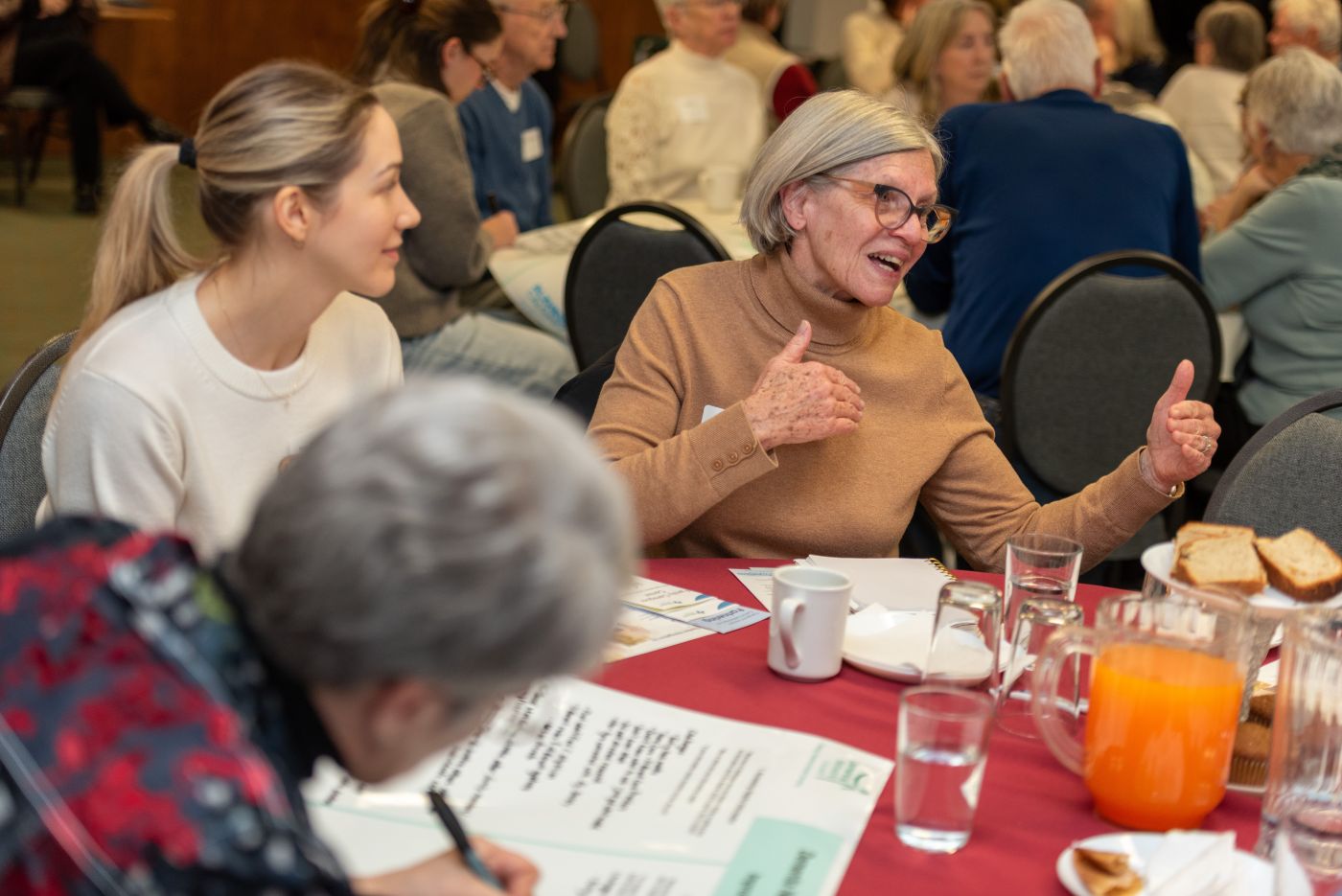Calgarians Speak Up About System Navigation

Listening to the voices of lived experience
On November 21st, 2025, Calgarians living with dementia, and caregivers of people with dementia, came together with academics and care professionals to discuss challenges in navigating the system.
The event's purpose was to gather information and perspectives that will be shared with care professionals, academics and key leaders in order to collectively design actions and advocacy that can begin to address these challenges.
"From listening to the speakers, as well as listening to what was shared at our table, I feel I really learned a lot. This meeting was actually the best, most informative session I’ve attended on dementia. I truly appreciate the opportunity to have been there. Thank you."
Download a printable PDF summary of the Gathering discussion here.
Attendees shared their personal experiences of trying to access information and supports. Here's what they told us:
Accessing Helpful Information:
“You don’t know what you don’t know”
- It takes a lot of time to get the testing and diagnosis done.
- Family doctors and geriatricians can have limited knowledge of dementia, leading to delays in diagnosis or referrals to available supports.
- Lack of information or clarity about what happens after diagnosis.
- Lack of consistency in being informed about or referred to services.
- People don’t know where to start - there isn’t a roadmap.
- You don’t have a sense of the full system before you begin to navigate it, or what the rules are.
- The differences between publicly and privately funded options are confusing and it’s not clear what the rules are.
- Most information is online, which can be challenging to access for some people.
Accessing Supports and Services:
“Shuffled around and lack of consistency”
- Even once you are in the system, wait times and access to services is a challenge.
- Care workers’ knowledge and training is inconsistent and can impact quality of care, especially when there are other co-existing conditions or complex needs.
- It’s frustrating being shuffled around a lot and having to repeat your story over and over again to different professionals.
- Some people feel that almost all resources and information are geared towards caregivers, not for the person with dementia. Some people feel that initial supports focus on supporting the person with dementia and not the caregiver’s needs.
- Rural residents can be denied access to programs within Calgary.
Your Ideas for Improving Access & Navigation:
“People with dementia deserve to and want to live a purposeful and meaningful life.”
- Talking to a real person in the system, and the same person over time.
- Training for, and offering of, standardized dementia assessment by family doctors or other professionals.
- More and better training for health professionals to understand dementia symptoms, and consistent protocols and regulations.
- Receiving a general overview at the time of diagnosis about the dementia journey and of supports, contacts and communication expectations.
- Having one professional as the point of care across the entire care continuum.
- Easily accessible information that clearly explains the funding resources available.
- Transparency about what the system can actually provide to you, and proactive communication from service providers.
- More opportunities for the person with the dementia diagnosis to still feel engaged. Supports for caregivers from the very beginning of the journey.
- More person-centred care.
Care professionals, community leaders, researchers, and people with lived experience are all part of the Network. To find out how you can participate in future events like this, sign up for our email newsletter here.
